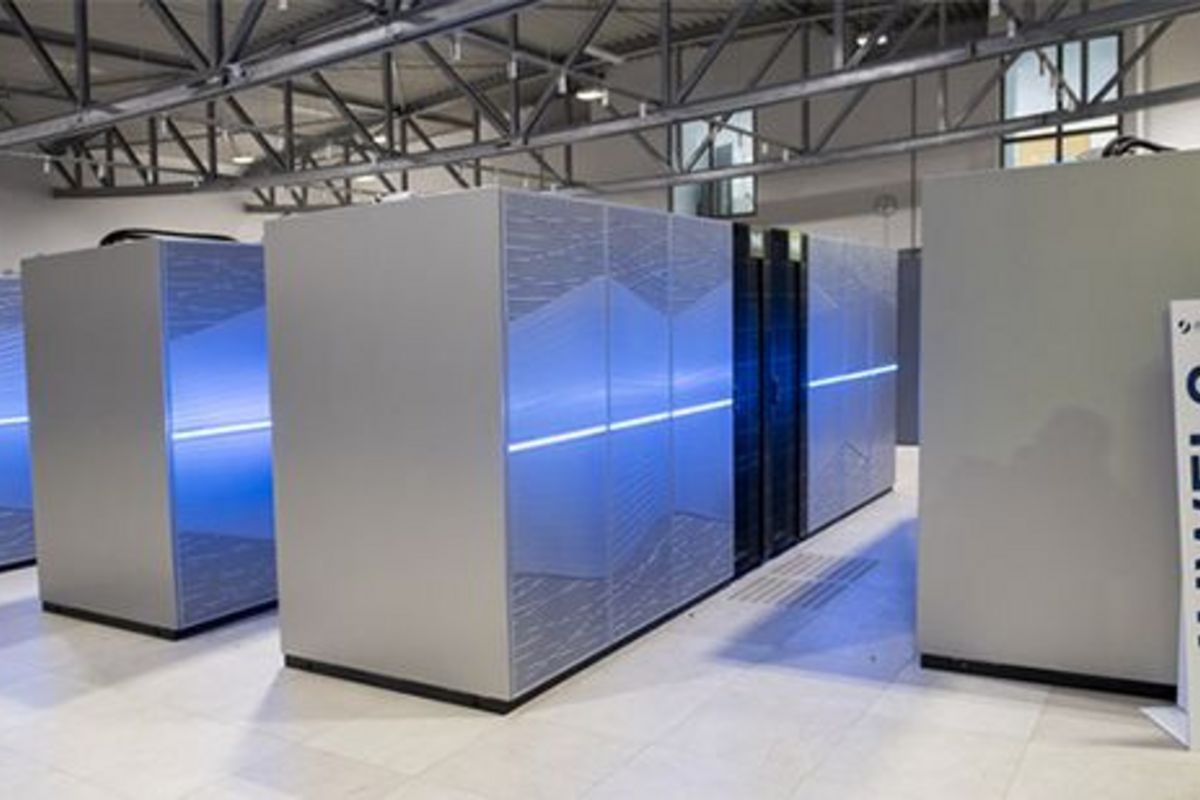During a ceremony led by state and federal officials at the Jülich Supercomputing Centre (JSC) on September 18, 2018, the currently fastest supercomputer in Germany, the Jülich Wizard for European Leadership Science (JUWELS) joined the Gauss Centre for Supercomputing (GCS) supercomputing family. The JSC machine, capable of 12 petaflops, is the latest member of the high-performance computing (HPC) systems offered by GCS and is the first modular architecture in the world going into operation.
JUWELS, built in partnership and co-design among French hardware provider Atos, German software company ParTec, Israel-based Mellanox, and JSC, is a milestone on the road to a new generation of ultra-flexible modular supercomputers, targeting a broader range of scientific applications. The first module is now in operation, and the additional modules will be subsequently added. Although the machine is the first double-digit petaflop system in Germany, JSC Director Professor Thomas Lippert emphasized that JUWELS’ multiple modules are focused more on delivering a flexible portfolio of architectures to enable researchers across a wide variety of scientific disciplines to achieve new heights in their research.
“For us, modular supercomputing is the key to a forward looking, affordable, and energy efficient technology which will facilitate the realization of forthcoming exascale systems,” he said. “As one of the largest German research centres, we are in a position to work together with our partners Atos and ParTec to develop the next generation of supercomputing ourselves.”
The system, which replaces JSC's IBM BlueGene/Q system JUQUEEN, consists of multiple, architecturally diverse but fully integrated modules designed for specific simulations and data science tasks. The first module, a versatile cluster architecture based on commodity multi-core CPUs, consists of about 2,550 compute nodes with two Intel Xeon 24-core Skylake CPUs each, and about two percent of the compute nodes feature four of the latest-generation NVIDIA Volta GPUs.
JUWELS embodies the German Smart Scaling strategy by delivering a stable, diverse architecture for researchers to spend more time focused on science and less time focused on optimizing their codes.
The projects supported come from science fields as diverse as atomic and nuclear physics, condensed matter, elementary particle physics, and scientific engineering. “We are excited to further develop and implement the modular architecture concept with JUWELS. Our next challenge is to work with our users on their applications to use the new system in the most efficient way,” concludes Professor Lippert.
-Eric Gedenk, e.gedenk@gauss-centre.eu
